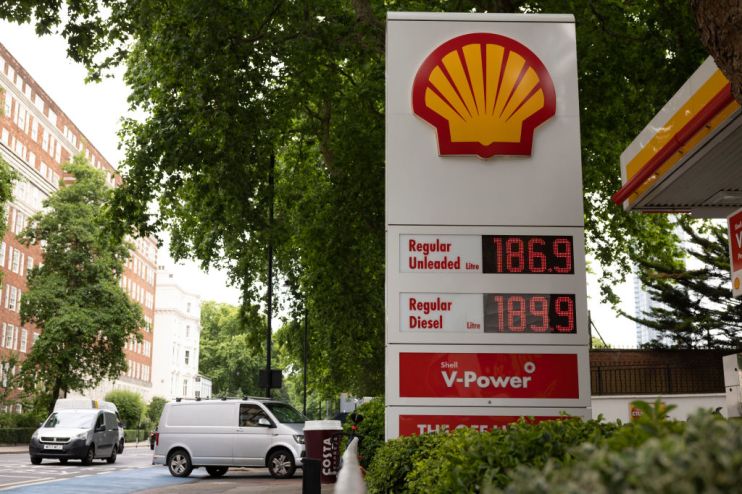Slashing taxes on fuel would half the cost of filling up a car

The cost of filling up a car in the UK would be nearly half the price if all taxes on fuel were scrapped, reveals analysis shared exclusively with City A.M.
Nearly 50p of every £1 spent on filling up a car in the UK is swallowed up by tax, according to research by the TaxPayers’ Alliance (TPA). Removing taxes on fuel would take the cost of each litre of petrol below £1.
The research lays bare the additional financial hit Brits are absorbing from double taxation when filling up their vehicles.
A 20 per cent VAT rate is levied on each litre of petrol or diesel consumed and on the nearly 53p fuel duty.
Chancellor Rishi Sunak cut fuel duty by 5p at the March spring statement. However, rises in petrol and diesel prices have cancelled out the adjustment. Some fuel suppliers have been accused of not passing on the duty cut in full.
The TPA said tweaking the tax regime on fuel would be a better solution to reducing fuel duty.
“Currently, the VAT on petrol is 29.26p and 30.89p on diesel per litre. If the VAT was only applied on the fuel (and not the duty), VAT would instead be 18.67p per litre or 10.59p less. For diesel, this would be 20.30p per litre and also 10.59p less,” the organisation told City A.M.
Household finances are already being crushed by petrol prices going through the roof as a result of European energy costs soaring due to western countries scrambling to find alternative oil supplies to wean themselves off Russian energy.
Some forecourts in Britain are charging more than £2 a litre for petrol.
Weak capacity in the European and UK energy industry to refine crude oil to generate petrol and diesel has lowered supply, driving prices higher.
Lingering Covid-19 supply chain disruption has also made it harder for fuel inventories to reach customers.
Rampant petrol and diesel price rises are fueling a toxic inflation mix in the UK that is dealing a heavy blow to households’ spending power.
Britain’s official forecaster, the Office for Budget Responsibility, has warned inflation will erode living standards at the fastest rate since the 1950s this year.
Concerns about a spending slowdown has prompted the likes of the Organisation for Economic Co-operation and Development and the Bank of England to warn the UK economy will stall next year.
Living costs are nine per cent higher than they were a year, the quickest acceleration in four decades.